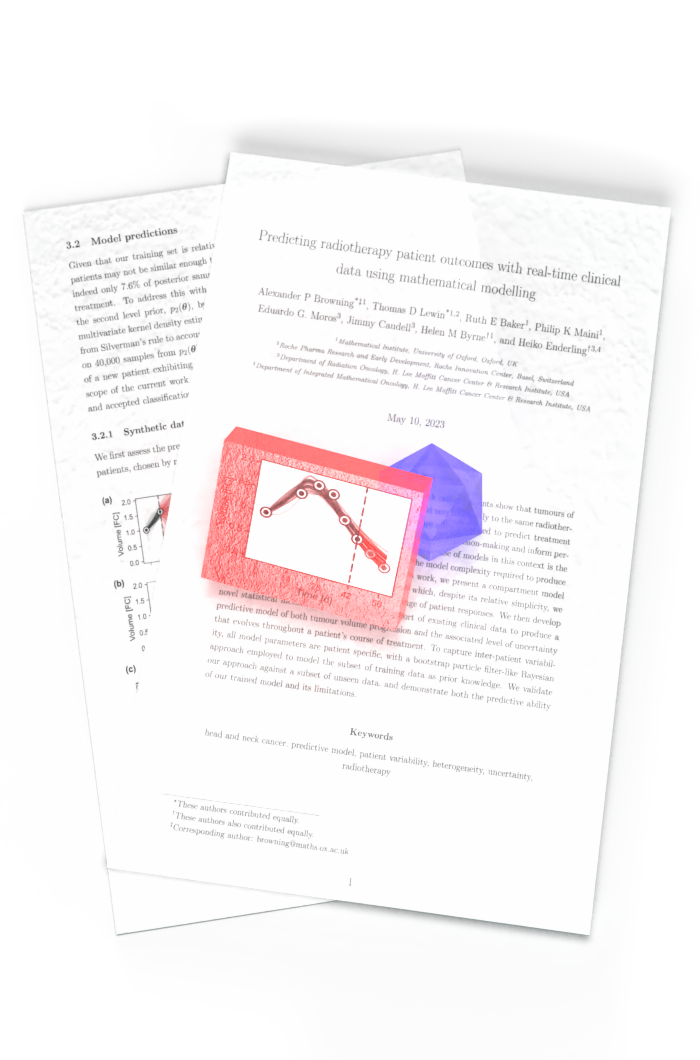Predicting radiotherapy patient outcomes with real-time clinical data using mathematical modelling
AP Browning, TD Lewin, RE Baker, PK Maini, EG Moros, J Caudell, HM Byrne, H Enderling
Bulletin of Mathematical Biology (2024)
AP Browning, TD Lewin, RE Baker, PK Maini, EG Moros, J Caudell, HM Byrne, H Enderling
Bulletin of Mathematical Biology (2024)
Longitudinal tumour volume data from head and neck cancer patients show that tumours of comparable pre-treatment size and stage may respond very differently to the same radiotherapy fractionation protocol. Mathematical models are often proposed to predict treatment outcome in this context, and have potential to guide clinical decision-making and inform personalised fractionation protocols. Complicating effective use of models in this context is the sparsity of clinical measurements juxtaposed with the model complexity required to produce the full range of possible patient responses. In this work, we present a compartment model of tumour volume and tumour composition, which, despite its relative simplicity, we demonstrate to be capable of producing a wide range of patient responses. We then develop novel statistical methodology and leverage a cohort of existing clinical data to produce a predictive model of both tumour volume progression and the associated level of uncertainty that evolves throughout a patient’s course of treatment. To capture inter-patient variability, all model parameters are patient specific, with a bootstrap particle filter-like Bayesian approach employed to model the subset of training data as prior knowledge. We validate our approach against a subset of unseen data, and demonstrate both the predictive ability of our trained model and its limitations.
